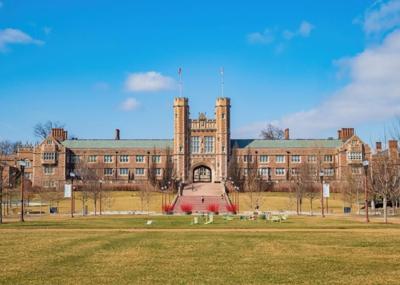Academic freedom in American universities faces threats today unmatched since the dark years of McCarthyism in the 1950s. Faculty at Washington University in ėŻ╠ę╩ėŲĄ this month have answered the emergency by forming a chapter of the American Association of University Professors (AAUP). More than 200 faculty have joined our chapter in its two weeks of formal existence, and that number is growing every day.
The AAUP has been, for more than a century, the leading voice for academic freedom at universities nationwide. The organization serves as both shield and sword, protecting against abuses and agitating for reforms. While the AAUP directly represents faculty, it also serves the interests of students and society.
Today, actions by governments and university administrations threaten both teaching and academic research. The Trump administration is using threats of withholding federal funding to damage universities and undermine educational programs. Many major universities are capitulating. Indeed, some were already stifling faculty and student expression long before TrumpŌĆÖs election.
People are also reading…
A number of them, however, are choosing a path of greater resistance. But so far, the leaders of Washington University have been conspicuously silent. (ŌĆ£Editorial: SLU steps up against TrumpŌĆÖs attacks on academia. WashU should, too.ŌĆ£ April 25.)
Structural trends in higher education have made the AAUPŌĆÖs mission increasingly crucial. Too many university administrators answer to politicians and donors, not to faculty and students. They submerge educational priorities beneath construction projects and fundraising campaigns. Terrified of disorder, they meet peaceful protests with riot police.
One cause of the present crisis is a decline in faculty influence on university policies. Last summer, for example, the Washington University faculty overwhelmingly voted to open an independent inquiry into the administrationŌĆÖs violent crackdown on a campus protest. Almost immediately, the universityŌĆÖs Board of Trustees denied our request and substituted its own investigation that fell far short of its aims of the standards of impartial, fact-finding research. Despite the facultyŌĆÖs clear will, no independent inquiry ever happened, leaving us in a weaker position to defend against political attacks on academic freedom.
National politics is making matters exponentially worse. The Trump administration has declared war on higher education. The government is starving scientific and medical research. It is taking books out of libraries and art off museum walls. It is shuttering archives and canceling conferences. It is branding critics of the Trump administrationŌĆÖs foreign policy as terrorist sympathizers. It is swooping onto campuses, summarily arresting members of our communities who traveled from their home countries to teach and learn in the United States.
These government actions, most of them blatantly unconstitutional, have cast a pall of fear over AmericaŌĆÖs campuses.
The government has put university administrators in a tough position. If they resist government pressure, they risk hundreds of millions of dollars in federal funding; if they cave, they embolden the government to demand more and more.
But tough challenges are supposed to be why we invest university leaders with power and prestige. When faculty, staff and students look to university leaders for information, guidance and purpose in moments of crisis, the answer cannot be equivocation or trepidation.
Direct challenge works. Thanks to legal suits and public mobilization, often spearheaded or joined by the AAUP, the Trump administration has reversed course on some of its most extreme policies, including by restoring the visas of international students, at least for now.
The threat has not abated, but there is no reason to be timid in the face of an incompetent president pursuing unpopular goals by unconstitutional means.
We call on Chancellor Andrew Martin to stand with us alongside faculty, students and alumni at WashU ŌĆö and with hundreds of universities nationwide ŌĆö in condemning the Trump administrationŌĆÖs actions and in defending our academic freedoms and institutional autonomy.
The AAUP exists to fight back. Our local chapter will help professors resist pressure to compromise the independence of their teaching and research. We will give faculty an independent voice in institutional governance. As an organization of educators, we will work to educate each other and the ėŻ╠ę╩ėŲĄ community about threats to academic freedom.
TodayŌĆÖs crisis in higher education is hurting our universities, our hospitals, and our country. Washington UniversityŌĆÖs AAUP chapter is here to help.













